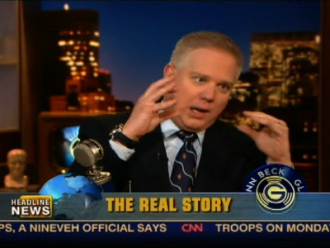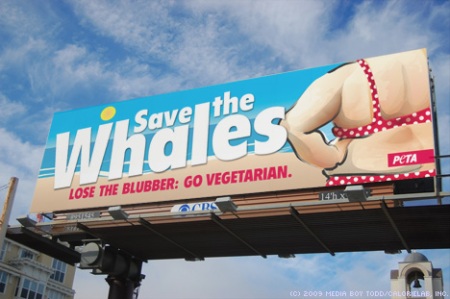Eleven year-old Lindsey Baum disappeared after leaving a friend’s home in McCleary, Washington, on June 26th of this year. Nine year-old Laurence Brannum disappeared from a beach in Santa Maria, California on April 15th. The last time anyone saw Reachelle Smith of Minot, North Dakota, she was three years old. That was in 2006. Today marks seven years since one year-old Ta’Niyah Leonard was taken from her home in Bartow, Florida. Don’t feel bad if you haven’t heard about any of these cases, I hadn’t either until I saw them listed in the National Center for Missing and Exploited Children database while researching this article. It’s doubtful that they warranted much of a blip outside of the immediate areas where each child disappeared.
But I bet you’ve heard about Falcon Heene. You had to have not watched a television, picked up a newspaper or gone on the internet anytime in the past four days to not have heard about Falcon Heene. The six year-old Colorado boy, now forever known as “Balloon Boy,” has been a top news story ever since it was believed that he floated away from his house in a homemade weather balloon last Thursday, drifting for more than fifty miles and leading to a massive search that temporarily shut down Denver’s airport and required the use of two National Guard helicopters. Footage of the weather balloon flying lazily several hundred feet over the ground warranted constant news coverage, even making headlines overseas. It’s easy to see why Falcon’s disappearance was considered a newsworthy event, more so than your run of the mill “child snatched off the street on their way home from school” story: first, there were the unique circumstances behind it. He floated away in a homemade balloon. It was scary, but kind of whimsical too, and you know that some struggling screenplay writer holed up in a tiny efficiency apartment in Santa Monica immediately started working on a plot outline as soon as he heard the first breaking news announcement, waiting on bated breath to find out if the story would end in tragedy or in tales of adventure, perhaps involving a talking bear or a friendly tree that carried the adorable little boy safely back home.
The second reason it made headlines was, of course, that the Heenes are minor celebrities, the thoroughly 21st century products of reality television. They appeared on Wife Swap, a program in which the matriarchs of two very different families switch places for a month, ostensibly to make changes in each other’s homes that somehow lead to everyone improving their lives. Mostly they just seem to scream and curse at each other, though, which is apparently what draws in viewers. The Heenes were reportedly one of the more obnoxious families featured on the program, which, of course, because of this Bizarro World we live in now in which appalling behavior is rewarded with attention and a chance at dubious “stardom,” meant that they were brought back to appear on a second episode.
Despite the non-stop coverage and viewers chewing at their nails in fear that they’d see little Falcon fall out of the balloon on live television, red flags about the authenticity of the family’s story went up almost immediately. For one thing, closer inspection of the balloon, which looked to be constructed mostly out of aluminum foil and duct tape, rendered it fairly obvious that it wasn’t capable of carrying a small child, certainly not far into the air for over fifty miles. Questionable details about the family emerged: for instance, dad Richard Heene, an amateur scientist and self-proclaimed “storm chaser,” had been unsuccessfully shopping around an idea for his own reality show for months, reportedly a rip-off of Mythbusters. Even TLC, bested only by VH1 and FOX as America’s go-to network for all that is tasteless and appalling, turned him down. When TLC, who recently began airing a program called My Monkey Baby, turns you down, you know your chances at stardom are slim at best. A disconcerting YouTube video showed Falcon and his two older brothers, presumably filmed by their parents, performing a rap charmingly called ‘Not Pussified,’ in which there’s a line about throwing rocks at a “faggot in a tree.” Richard Heene seemed remarkably calm and self-assured in front of news cameras for someone whose child was missing and possibly endangered. My daughter was less than a half hour late getting home from school a couple weeks ago and I had a panic attack. Maybe it was shock. Or maybe he just knew something that the rest of the world didn’t know.
Of course, as you know by now, Falcon was never in any danger. Lo and behold, he appeared out of nowhere in his home, with his family claiming he had been hiding the whole time in the attic, a place that somehow no one thought to look in when he was missing. He had never been in the balloon in the first place, rendering the whole situation a non-story, yet it still warranted round the clock coverage, with the family giving televised interviews to three different news outlets the next day. Falcon, who was reportedly so nervous that he vomited before appearing on two of the programs, almost immediately gave up the ghost when, after asked why he didn’t come out of hiding even when he heard people calling for him, muttered that he did it “for the show.” Leave it to little kids to tell the truth even when you don’t want them to, that’s why you never ask any of them if they think you’re fat. Dad Richard applied some quick damage control, explaining that Falcon was confused, and that when he meant “the show,” he meant the show he was appearing on right then. In a turn of events more shocking that Britney Spears and Kevin Federline breaking up or Ellen Degeneres announcing that she was gay, it turned out the whole thing was a hoax, orchestrated by Richard Heene and his wife in order to generate publicity that could (and probably would, if they hadn’t gotten caught) finally get their own reality show off the ground.
Perhaps the most surprising aspect of the situation at this point is that it’s still a top story. As he has yet to have formal charges filed against him, technically speaking Richard Heene is still winning here. His plan so far has been successful. Sure, the world at large thinks he’s a dreadful human being who has no business being a father, but look at what deciding to become a worthless douchebag has done for Jon Gosselin’s career. Spencer Pratt of The Hills, which MTV is still weakly insisting is a reality program, makes $65,000 episode by being a miserable shitball. Even the ladies have gotten in on it–Omarosa Manigault-Stallworth has maintained a fruitful career appearing as a combative villain in everything from The Apprentice to The Surreal Life; her success is curiously explained as being because “viewers hate her.” Unless one of these shows is going to end with her being thrown into a room with a bunch of starving pit bulls, I’m not quite sure how that works, but perhaps that’s why I don’t work in the entertainment industry. When it comes to success in reality television, which can be parlayed again and again into a career appearing on other reality programs, generating a considerable amount of income, being a total asshole pays off.
I was going to use this story as an excuse to go on my rant about reality television again, how I believe, with absolutely no hyperbole, that it’s a blight on society, and one of the worst things ever inflicted on pop culture as a whole. Filing a false report claiming your child has disappeared in order to get your own television show is incomprehensible. Octomom? Octomom is a piker, this just goes beyond the pale. My wish that people would stop watching Jon and Kate Plus 8 has only recently come true, and not nearly soon enough. Now I have an all-encompassing wish that people would stop watching reality television in general, simply because it’s clear that there are far too many individuals who will go to pretty much any length required in order to get that brief taste of fame that appearing on The Biggest Loser or The Bachelor allows, including using their own children as pawns for publicity. All bets are off at this point, and I really wonder what it will take, what sort of appalling stunt someone will pull, that will finally lead to the shutdown of much of this garbage. Perhaps someone will pry out their own teeth in order to appear on a makeover show. That was merely speculation, for the love of God, don’t do that.
But instead of ranting about Satan’s presence behind the scenes of Big Brother and Tool Academy, I’ll wrap this up with some thoughts on how the Balloon Boy hoax, if nothing else, once again puts a spotlight on the media’s skewed handling of missing children cases. Sadly, and perhaps inexplicably, missing children rarely make the news outside their own hometowns anymore unless there’s some sort of special angle the media can capitalize on, such as, say, they were believed to have floated off into the sky in a balloon or their family appeared in an episode of some piece of crap TV show. While a child just disappearing without a trace one day is a fairly rare event, and the vast majority of missing children are taken by a non-custodial parent, it does happen more often than coverage on such outlets as CNN and MSNBC would have you believe. Consider the story of Adji Desir. Six year-old Adji, the same age as Falcon Heene, disappeared from outside his grandmother’s home in Immokalee, Florida in January of this year. Searches and various leads have gone nowhere, and police coverage of the case has dwindled down to almost nothing, resulting in his family having to place ads on Craigslist requesting any help or information.
Adji’s disappearance warranted exactly one brief segment on an episode of Nancy Grace, odd considering Grace’s near-obsessive, day to day coverage of the disappearances of two other Florida children, Caylee Anthony and Haleigh Cummings. He’s been missing for ten months, and requests that his story be profiled on major news outlets and even by Oprah Winfrey have gone unanswered. Falcon Heene was missing for three hours, and it immediately became a top story with round the clock coverage. Why isn’t “Adji Desir” a trending topic on Twitter? Why hasn’t Adji Desir’s family appeared on Larry King Live or the Today show? Why does there have to be an “angle” to make his disappearance a newsworthy event? Suggesting that it might be because Adji is a special needs child of Haitian immigrants, and thus not likely to be embraced as “America’s child” by the public at large, would simply be too cynical, wouldn’t it? I realize I’m not saying anything new and controversial–it’s obvious that media coverage of missing children, as well as missing adults, is blatantly favored towards white people, and that goes double if the family is prominent, which, sadly, the Heenes qualify as. The least we can do is own up to the fact that we in general only give a shit about people’s kids disappearing if they remind us of our own kids, or if we feel like we “know” the family somehow. You want a reality show? Let’s see what life is like for Adji Desir’s family.
 Gather round, boys and girls, and listen to your Auntie Gena tell you a story about my origins as a film snob. Being that I was a lonely, introverted only child, I spent a lot of time alone, either reading or watching TV. Luckily, my parents got cable when it was still considered a luxury, which made my TV watching experience that much better. We rarely paid the phone bill on time, but dammit, we had HBO, Cinemax, Showtime, Prism, the works. Mostly I watched horror movies, but occasionally, because my parents rarely monitored what I watched to make sure it was age appropriate, I saw stuff like A Clockwork Orange, Taxi Driver and Looking for Mr. Goodbar as well, all of which could be considered horror movies of a different kind. I didn’t claim to understand any of them very well, but I found them deeply fascinating, mainly because they were just so different than much of the other stuff that was on TV and in the theaters, where everything was bright and happy, and everybody always got what they wanted at the end.
Gather round, boys and girls, and listen to your Auntie Gena tell you a story about my origins as a film snob. Being that I was a lonely, introverted only child, I spent a lot of time alone, either reading or watching TV. Luckily, my parents got cable when it was still considered a luxury, which made my TV watching experience that much better. We rarely paid the phone bill on time, but dammit, we had HBO, Cinemax, Showtime, Prism, the works. Mostly I watched horror movies, but occasionally, because my parents rarely monitored what I watched to make sure it was age appropriate, I saw stuff like A Clockwork Orange, Taxi Driver and Looking for Mr. Goodbar as well, all of which could be considered horror movies of a different kind. I didn’t claim to understand any of them very well, but I found them deeply fascinating, mainly because they were just so different than much of the other stuff that was on TV and in the theaters, where everything was bright and happy, and everybody always got what they wanted at the end. Unlike most of the rest of the country, rather than Inglourious Basterds I opted to see Ponyo this past weekend. That’s not to say I have no intention of seeing Inglourious Basterds, quite the contrary I’ve been looking forward to it for months now and will see it on Wednesday, which is great because it means I can be lazy and pass off a movie review as a post here twice in one week. Score! Nevertheless, I’ve heard good things about Ponyo, not to mention the fact that I have a child who is in that stage where she thinks everything that comes out of Japan is pure gold (I fear I may have a future weeaboo on my hands), so I figured we ought to catch it during its brief run in the theater, if for nothing else than to take away a few bucks from G.I. Joe and G-Force.
Unlike most of the rest of the country, rather than Inglourious Basterds I opted to see Ponyo this past weekend. That’s not to say I have no intention of seeing Inglourious Basterds, quite the contrary I’ve been looking forward to it for months now and will see it on Wednesday, which is great because it means I can be lazy and pass off a movie review as a post here twice in one week. Score! Nevertheless, I’ve heard good things about Ponyo, not to mention the fact that I have a child who is in that stage where she thinks everything that comes out of Japan is pure gold (I fear I may have a future weeaboo on my hands), so I figured we ought to catch it during its brief run in the theater, if for nothing else than to take away a few bucks from G.I. Joe and G-Force. In the midst of all the madness regarding health care reform and town hall meetings, there are glints of rationality showing here and there, observed in the number of sponsors pulling ads from Glenn Beck’s Fox News program faster than rats escaping from the proverbial sinking ship. In just a matter of a couple of weeks, everyone from Geico to Proctor & Gamble to Progressive have been disassociating themselves from Beck’s program, undoubtedly no longer wanting it to look as though they endorse his increasingly psychotic, teary-eyed, racist rants about how the America he once knew and loved is being steered straight to Hell on the S.S. Obama. Even Wal-Mart, long known as the store of choice for the salt of the Earth, working class folks Beck has appointed himself the spokesman for, has packed up its shit and left the party, always a smart move when the host is weeping and babbling about shadow conspiracies against the white man.
In the midst of all the madness regarding health care reform and town hall meetings, there are glints of rationality showing here and there, observed in the number of sponsors pulling ads from Glenn Beck’s Fox News program faster than rats escaping from the proverbial sinking ship. In just a matter of a couple of weeks, everyone from Geico to Proctor & Gamble to Progressive have been disassociating themselves from Beck’s program, undoubtedly no longer wanting it to look as though they endorse his increasingly psychotic, teary-eyed, racist rants about how the America he once knew and loved is being steered straight to Hell on the S.S. Obama. Even Wal-Mart, long known as the store of choice for the salt of the Earth, working class folks Beck has appointed himself the spokesman for, has packed up its shit and left the party, always a smart move when the host is weeping and babbling about shadow conspiracies against the white man.
 RSS Feed
RSS Feed